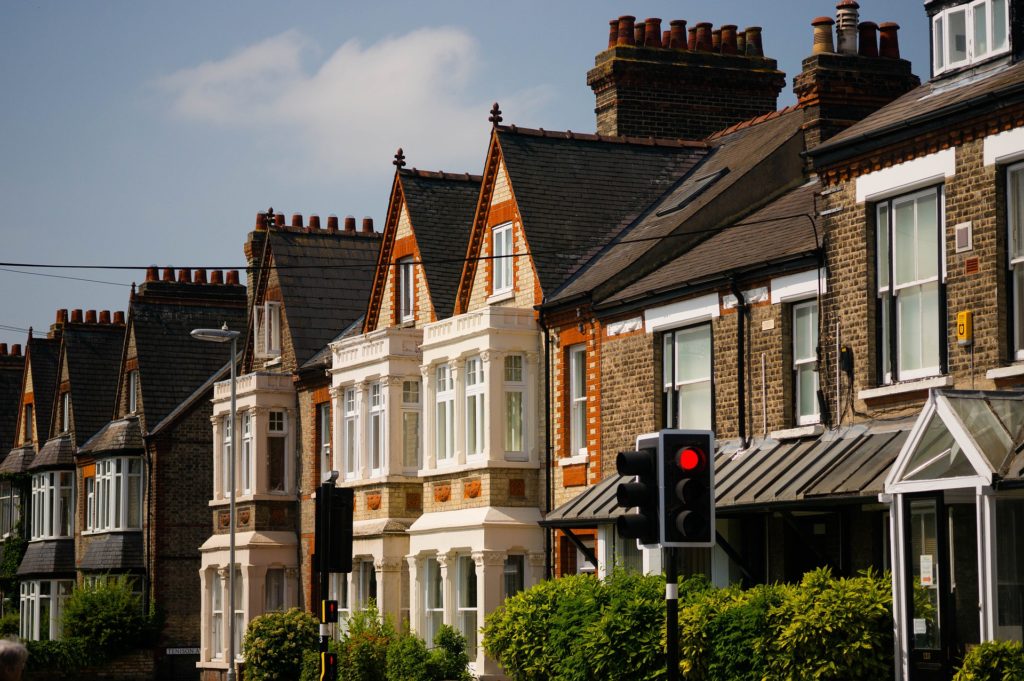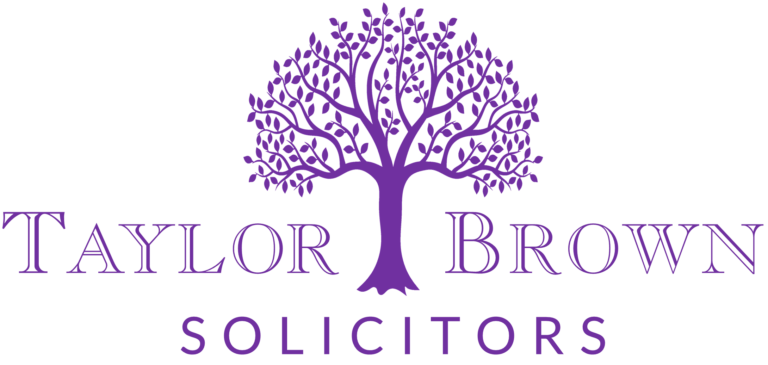Residential Conveyancing
Moving home is usually the largest and most important financial transaction that most people will undertake in their lives. To ensure that the process goes as smoothly as possible you will need a solicitor you can rely on, an expert by your side who understands all the essential legal details and that one size does not necessarily fit all when it comes to your specific arrangements.
We are proud to have been accredited by the Conveyancing Quality Scheme and have helped thousands of people through the conveyancing process.
At Taylor Brown we provide a professional, cost-effective service while also ensuring every client has a dedicated solicitor appointed to deal with their matter.
Our aim is to try and reduce the legal stress as much as possible for our clients and provide as personal a service as possible.
Please get in touch to discuss your conveyancing requirements, or for more information on how we can help.
Why choose Taylor Brown Solicitors?
We are experienced in all types of property transactions, including:
- Buying and selling freehold and leasehold property
- Re-mortgaging
- Equity release
- Gifts and transfer of equity
- Lease extensions
- Buying land and development sites
- Buy to let property
- Help to buy
- Shared ownership
- Right to buy

Conveyancing Fees
Buying or selling your home can be a stressful time. At Taylor Brown we offer fixed fee conveyancing, meaning that the price we quote you upfront is the price you will pay unless there are unforeseen circumstances, in which case we will inform you of any additional cost at the earliest opportunity.
Our quotes include a complete breakdown of the cost of your conveyancing, including our fees and the various fees paid to third parties, such as HM Land Registry. These third-party costs are known as disbursements and are fixed, meaning they should be the same between different firms of conveyancers and conveyancing solicitors.
You can also find some information about our charges on our Fees page.
Key Milestones
With every transaction there are key milestones, which may vary according to individual circumstances. As an example, for a standard purchase we would:
- Take your instructions and give initial advice based on the information you have provided
- Confirm your identity via our provider Thirdfort, who will also conduct anti-money laundering checks
- Check finances are in place to fund the purchase and contact lender’s solicitors if needed
- Receive and advise on contract documents
- Undertake searches
- Obtain further planning documentation if required
- Make any necessary enquiries with the seller’s solicitor
- Give advice on all documents and information received
- Advise you of the mortgage offer conditions
- Finalise the contract and send it to you for signature
- Agree completion date (date from which you own the property)
- Exchange contracts and notify you that this has happened
- Arrange for all monies needed to be received from lender and you
- Complete purchase
- Deal with payment of Stamp Duty/Land Tax
- Deal with application for registration at Land Registry

Leasehold and Freehold - What is the difference?
Most houses in the UK are freehold. This means your ownership is not limited in time and you will usually be buying the structure of the building itself, together with the land it’s built on and any attached garden.
Most flats, however, are leasehold. This means:
- You will be buying the right to live in the property for a period of years (usually 125, 250 or 999 years). Once that period of time has ended, the property ownership will revert to the freeholder, unless the leaseholder has applied to extend the lease (subject to a negotiated price)
- During your period of ownership, you must comply with the terms of the lease of the property
- You are the ‘tenant’ or ‘lessee’ under the lease. The freehold is owned by the ‘landlord’ or ‘lessor’
- The lease will set out the responsibilities of the tenant and landlord. Usually, the Tenant is responsible for the repair, maintenance, and decoration of the interior of the flat and the Landlord is responsible for the repair, maintenance, decoration, and insurance of the structure and communal areas of the building. The Tenant reimburses the Landlord by way of a service charge for a share of the costs incurred by the Landlord for carrying out these responsibilities
- Most leases also require Tenants to pay Landlords an annual ground rent. The Government intends to ban ground rents on future new leases, but at present it is still legal for new properties to include them. Mortgage lenders have strict criteria regarding acceptable levels of ground rent.
If you are buying a Leasehold, there will be additional fees incurred. These fees will vary from property to property, but we will endeavour to notify you as soon as possible about any fees which may arise throughout your purchase. At the very least, in for a typical leasehold purchase, additional fees will include:
- Notice of Transfer fee – This fee, if chargeable, is set out in the lease. Often the fee is between £75.00 and £250.00.
- Notice of Charge fee (if the property is to be mortgaged) – This fee is set out in the lease. Often the fee is between £75.00 and £250.00.
- Transfer of any share in the Management Company or application to become a member (where relevant). This fee is again chargeable under the lease. Often the fee is between £75.00 and £250.00.
- Deed of Covenant fee – This fee is provided by the management company for the property and can be difficult to estimate. Often it is between £200.00 and £500.00.
- Certificate of Compliance fee – To be confirmed upon receipt of the lease, as can range between £100.00 and £300.00.
In some situations, there can be two sets of these fees payable where there is a Landlord and Management Company that require notices. These fees are set by the Landlord or Managing Agent for the whole development.
Because these fees vary from property to property, they can on occasion be significantly more than the ranges given above. We can give you an accurate figure once we have sight of your specific documents.
You should also be aware that ground rent and service charge are likely to apply throughout your ownership of the property. We will confirm the ground rent and the anticipated service charge as soon as this we receive this information.
Where you are selling a leasehold property, it will be necessary to obtain information from the Landlord or Management Company. The cost they charge can typically be up to £500.00.
Some of these fees may also be payable for freehold properties that are on developments which include management companies.

Searches
These are carried out with various authorities to discover information about the property. They will reveal, for example, whether or not the property is connected to mains water and public sewers, who owns the road accessing the property, and any environmental or planning issues affecting the property.
Mortgage providers will require us to conduct these searches. There is a standard fee for the initial search, but from time to time we may request further searches in order to carry out our due diligence in your matter.
Stamp Duty Land Tax (SDLT)
This calculation is dependent on the purchase price of your property, whether or not you are a first-time buyer, and whether or not you are purchasing your prime residence.
You can calculate the amount you will need to pay by using HMRC’s website or if the property is located in Wales, by using the Welsh Revenue Authority’s website here.

How long does the Conveyancing Process take?
How long it will take from an offer being accepted until completion will depend on a number of factors. A standard property purchase with no complications takes between 8 and 12 weeks, but please be mindful that there are a number of factors that may cause delays.
The speed of the process also depends on other parties in the chain. For example, if you are a first-time buyer, purchasing a new build property with a mortgage in principle, it could take 6 weeks. However, if you are buying a leasehold property that requires an extension of the lease, this can take significantly longer, between 3 and 6 months. In such a situation, additional charges would apply.
Please contact us for more information, or for a detailed quote based upon your particular needs.
Commercial Conveyancing
Please visit our ‘Commercial’ page for more information about the commercial conveyancing services we provide.

